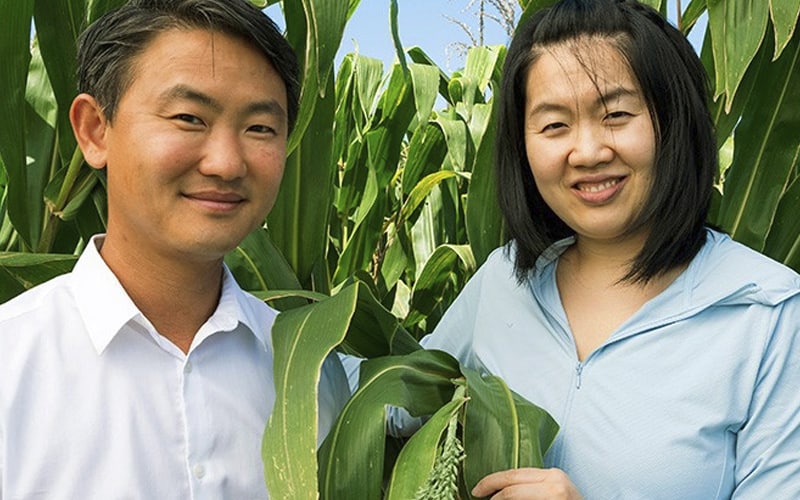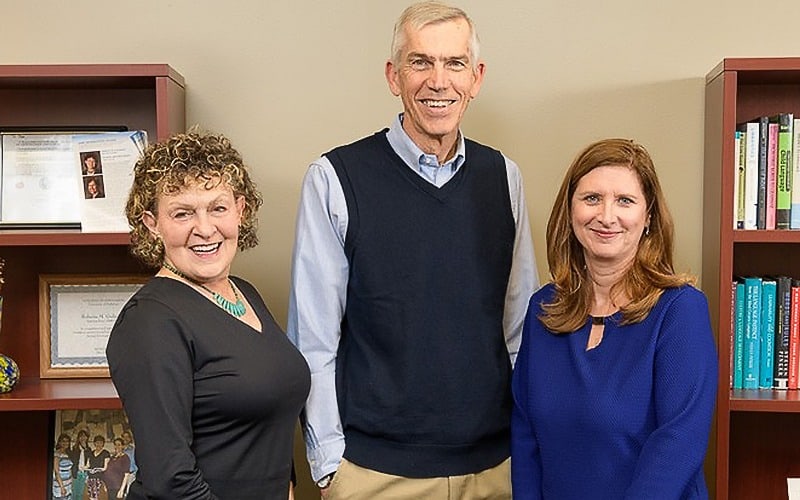 Research & Discovery
Research & Discovery
A Blog Devoted to UD Innovation, Excellence and Scholarship
Research & Discovery
A Blog Devoted to UD Innovation, Excellence and Scholarship
Food security under changing climate

ABOVE: Jeffrey Caplan (left), UD associate professor of plant and soil sciences, and post-doctoral researcher Kun Huang, are part of a $3.5 million NSF grant to understand how pollen develops in plants, such as corn.
UD part of $3.5 million NSF-funded study to improve key crop resilience
An interdisciplinary team of researchers from the University of Delaware, the Donald Danforth Plant Science Center and Stanford University have been awarded a four-year, $3.5 million National Science Foundation grant to address concerns about reduced harvests of corn and other cereal grasses.
The project will focus on understanding the small ribonucleic acid (RNA) pathways involved in anther development and crop development when plants are challenged by adverse environmental conditions. Small RNAs are tiny messengers that carry genetic information inside living cells, in this case anthers—the site of pollen development in plants.
According to the Environmental Protection Agency, grains such as wheat, corn and rice grown in the United States account for roughly 25 percent of all grains worldwide. Changes to climate, including the frequency and intensity of extreme weather, are expected to impact crop yields at a time when the planet’s population — and the demand for food — is rising.
The collaborative effort brings together expertise in plant genomics and targeted genetic changes; cutting-edge imaging techniques; and bioinformatics, the science of collecting and analyzing complex biological data, with a focus on developmental biology to meet the demands of producing more nutritious food in climates with higher temperatures.
Jeffrey Caplan, UD associate professor of plant and soil sciences in the College of Agriculture and Natural Resources, is a co-principal investigator on the project, which is led by Blake Meyers, a member of the Donald Danforth Plant Science Center and professor in the University of Missouri’s Division of Plant Sciences. The work is a continuation of a previous NSF study Meyers began while chair of UD’s Department of Plant and Soil Sciences.




